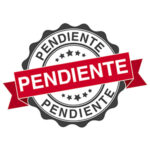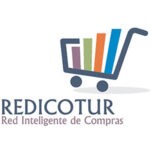Objectives
- Increase the sustainability and competitiveness of enterprises (specifically SMEs) and all relevant actors in the tourism supply chain, along the transnational L'AQUA route, based on local oral traditions, stories, sagas, key characters associated with water.
- Create and distribute and raise awareness of the rich intangible heritage made of local stories, legends, sagas, characters, where partners and other sector stakeholders have already accumulated knowledge, and how this heritage can be further exploited in transnational tourism offers, services and products.
- Give the opportunity to local communities and tourism businesses and organisations and other stakeholders to build and share new stories, legends, sagas, characters and link these to their own tourism offer.
- Create the L'AQUA network that manages the transnational product and ensures the quality and adequacy of the tourism offer through the application and implementation of a standard methodology and processes.
- Stimulate cooperation between SMEs (and other companies) in the sector and with public bodies, and support the creation of joint tourism offers, products and services related to myths and legends.
Work plan
In total, L’AQUA lasted 18 months. The work was divided and developed chronologically in 7 specific WPs with corresponding tasks. Two different types of WP can be described:
- Operational WP (1-6): those that develop the technical aspects of the project
- Management WP (7): the one with the support activities to ensure the coordination and to guarantee the good development of the project with a parallel development throughout its life.
In terms of operational WGs, the project development was structured around a strategy approach that integrated 3 types of activities and ensures the achievement of the objectives:
- Analysis: activities related to the collection, processing and joint analysis of knowledge and relevant to the L’AQUA product and network, taking into account both the supply side (the actors of the tourism value chain) as well as the demand side (potential markets and customers). WP1 and WP2 (in part) are part of this phase.
- Design, implementation and validation: The activities in which, based on the analysis of the specific plans, actions and market entry strategies of the L’AQUA product and establish the structure that governs and controls the product and guarantees a set of quality standards. WP2 (in part), WP3, WP4 and WP5 are part of this phase.
- Dissemination and exploitation: These activities aim to reach out to the target community and relevant stakeholders, and to share the project and ensure the future sustainability of the project results and the L’AQUA product and network. WP6.
Project consortium
- AEI Cluster de Turismo de Extremadura (ES).
- Cyprus University of Technology (CY).
- Stichting Business Development Friesland (NL).
- Karuskose OlJ (EE).
- Provincia di Terni (IT).
- Velencei-tavi Fejlesztesi Nonprofit Kft (HU).
- Universidad de Extremadura | RED Universidades Lectoras (ES).
- Fundación para el Desarrollo Infotecnológico de Empresas y Sociedad (ES).
- Arbeitsgemeinschaft Europäischer Grenzregionen (DE).
- Junta de Extremadura/Consejería de Empleo, Empresa e Innovación/DG Empresa y Actividad Empresarial (ES).
- Partenalia aisbl (BE).



